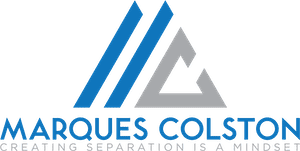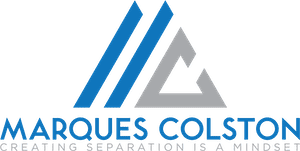When you choose to pursue entrepreneurship, it’s highly likely that you’ll lose some battles (maybe a lot) along your journey. Losses come from different angles, in different forms. Sometimes it appears in the form of personal adversity, business challenges, or even caused by a global pandemic. No matter how they show up, I’ve learned that the path to meaningful and sustainable success lies in navigating through adversity and challenges.
I was blessed and fortunate to achieve my childhood dream of playing in the NFL. I didn’t just reach the top. I stayed there for over a decade, playing at a high level. That’s what most people see, and they are right.
But they don’t see the path that led to that type of success. One peek behind the curtain reveals the pain, failures, setbacks, and sacrifices that line the path to success like breadcrumbs. The triumphs and wins are mixed with bouts of self-doubt and imposter syndrome, physical injuries, and emotional burnout.
If your story sounds familiar, you’re in great company. Most successful people, I’d bet every last one, have experienced a string of losses and setbacks along their way to success. Their brilliance lies in the fact that they’ve been able to process those failures and build on them. They understood that each defeat was filled with important data.
Many of us can tend to deal with the emotions associated with the loss. It’s easy to can become fixated on the defeat or loss itself. It’s especially easy when you have a lot invested in the success you’re chasing– whether financially, mentally, emotionally, or reputationally. etc. Yes, it’s healthy to express frustration, disappointment, and anger. However, you have to move beyond the loss itself to find out how you can learn and grow from it.
NO ENTREPRENEUR IS SAFE
In 2017, I started a digital marketing agency to service small businesses. The goal was to provide everything from DIY marketing solutions to managed services for small businesses. I did the market research, the timing felt right, the opportunity seemed to be there. We built out the business model and found an outsourced solution to fulfill some agency work on the back end. Next, we began to find and onboard contractors to help operate the front end of the business. At that point we started to do some PR and began spreading the word to get ready for a launch. We were ready to roll.
The business model itself was not complicated. In essence, we had to build a marketing and sales funnel that converted visibility into leads and then into customers. We positioned ourselves to help small businesses of all sizes, offering DIY services from a marketplace or we’d fulfill the managed services through our provider. Seemed simple.
In hindsight, the thing I didn’t account for was my role within the company. As the founder I was well-positioned to drive visibility, awareness, and business development. But, I underestimated the nuance and details of the day-to-day operations. Even more importantly, I overestimated my ability to handle them. And that miscalculation would become the fatal flaw of the business.
As challenges arose, I found myself trying to plug all of the holes myself. There were times when slowing down and getting reorganized was the right choice. Other times looking for support and domain experts would’ve been the right call. But I allowed my pride as the Founder and CEO to get in the way. I wanted to fix my business in the worst way. But instead of leveraging my most impactful assets, I tried to develop new ones on the fly. And eventually, I became the bottleneck that blocked the business from leaving the starting line.
In wearing so many other hats, I didn’t leave enough room to execute the most important and impactful role I could fill- the rainmaker. Without business development, there was no revenue. And without revenue, there was no business. Over the next few months, the sales pipeline dried up and the business was on life support.
At that point, the current iteration of my marketing agency was dead. Monthly expenses continued, and there wasn’t enough revenue to cover. I was funding the overhead out of pocket. Eventually I had to accept the reality that the business wasn’t worth trying to salvage. It took several months but I finally came around and made the hard decision to close the doors on the business. In evaluating where things went wrong, in post-mortem I learned three valuable lessons:
DON’T LET YOUR PRIDE DIG YOU DEEPER- NOBODY ELSE CARES
My pride was a major reason it took so long for me to close the business after failure was all but certain. After going out and talking about the business in the media and PR, how could I be closing the doors on the business so soon? I knew the right decision was to cut my losses and move on, but I allowed my pride to get in the way. And that pride ended up costing me valuable time and money (about 6 months worth).
At that point in my life, a public failure was more intimidating than continuing to bleed money and burn valuable time in private. I had spent so much time building a personal story around success that I believed this failure would somehow leave a blemish.
Ultimately, nobody gives a damn. More successful people have failed more spectacularly. Failure is a part of the entrepreneurial process. Prolonging it made the financial loss much worse. As the saying goes, why throw good money after bad? At some point, you cannot continue to fuel a losing battle. The longer you say yes and commit to a losing battle, you the longer you have to say no to something else that may be a winner.
PERFECTION IS THE WORST ENEMY OF PROGRESS
As a young entrepreneur it’s easy to confuse activity for productivity. There is something satisfying about spending hours in front of the computer and checking items off your task list. It can be gratifying. However, you have to ask yourself if those tasks and activities are driving the business forward.
I’d spend hours and hours developing my company’s website. It became a never-ending project with constant tweaks and changes. I wanted it to look perfect. After all, if I was selling digital marketing solutions and services, how could it not be a flawlessly designed website?
While the design was important, it was more important to figure out how to get people to visit the website. Spending too much time designing in a silo led to constant tweaks that may not have been necessary. I spent valuable time and resources based on my own opinion instead of designing based on customer feedback.
It would have been much more efficient to launch the first version and allow customers’ feedback to inform the design changes. The opportunity cost and the real cost to the business were other major hurdles that kept it from being successful
JUST BECAUSE YOU CAN DOESN’T MEAN YOU SHOULD
One of the hardest lessons I’ve learned as an entrepreneur is how to delegate. As someone who built a successful career by outworking and out-grinding my competition, it is ingrained into my mind that if I want it done right, I do it myself. It’s a noble thought, but only in theory. In business that mindset can have a detrimental effect.
Building the agency, I thought I had to build all the processes and solve all the problems. I soon found myself bogged down with every technical detail of the business. Website down? I became the IT guy. Need an autoresponder campaign? I became the copywriter. I learned the valuable difference between working in your business vs. working on your business.
Picking up these new skills might serve me well in the future. But in this venture, they kept the business from spreading its wings. In hindsight, my time would’ve been better spent trying to find the right people to fill the more tactical roles in the business. Yes I was able to learn the skills eventually, but at what cost to the business?
Each loss stings in its own unique way. The pain in each loss will never go away, nor should it. It’s a sign that you care about accomplishing your goals and aspirations. That passion and emotional attachment can serve as your north star, guiding you through the tough times ahead.
But pain is just one part of the loss.
No loss or setback is permanent unless you allow it to be. Each one presents an opportunity to learn valuable lessons that balance and recalibrate your perspective. You either win or you learn. Either way, you grow.

